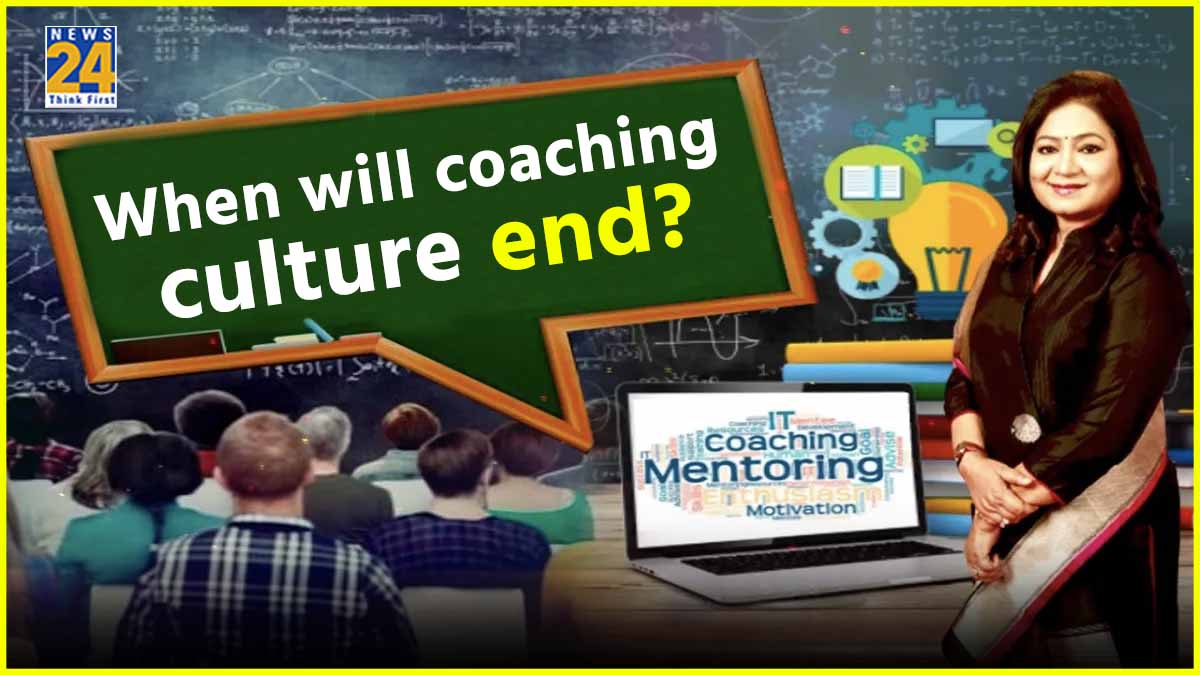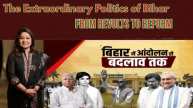Election fervour has gripped the entire nation. Conversations during morning walks in parks often revolve around speculations on how many seats the BJP will secure with over 50% of the votes this time. Some argue that Congress will emerge as a hidden champion this time around. Others suggest that in Delhi and Punjab, the equation will favour the Aam Aadmi Party, while in other regions, the votes will be divided among leaders like Akhilesh Yadav, Tejashwi Yadav, and Mamata Banerjee.
We’re quite argumentative when it comes to our political preferences and dislikes. You’ll find discussions on politics even at tea stalls these days. However, today we won’t dwell on politics. Instead, let’s talk about your children’s education, a concern that every parent grapples with. The board exams for 10th and 12th grades have concluded, and now everyone awaits the results. For those who have already taken the 12th-grade exams, the biggest dilemma is where to seek admission.
The growing trend of coaching
This year, around 36 million students applied for medical and engineering entrance exams. Nearly 13 million students have applied for the CUET-UG for university admissions. The demand for admissions is high while the available seats are limited. Consequently, there’s been a rapid rise in the trend of coaching to achieve good rankings in entrance exams. Most middle-class parents whose children have completed the 10th grade worry about how to afford the hefty fees for NEET or JEE coaching. Can’t we have an education system in our country where expensive coaching is unnecessary? Can’t our education system be free from the coaching or tuition culture? Can the new education policy truly facilitate the holistic development of students?
From remote villages to cities for entrance exam preparation
It’s often said, why the need for coaching? Even without coaching, a student can get admission to good medical or engineering colleges. However, why is it that a 16-17-year-old from Bihar catches a train to Kota in Rajasthan for coaching? Or a student from Basti, Uttar Pradesh, joins coaching in Delhi for JEE preparation? A girl from a small village in Bankura, West Bengal, travels to Kolkata to fulfill her dream of becoming a doctor through NEET preparation. These stories resonate with millions of children in our country. Because they know that the kind of education they received in schools makes it difficult to excel in JEE-NEET exams. Most parents also believe that if their children are admitted to a good coaching institute right after 10th grade, the path to admission to top engineering or medical colleges would become easier for them. It’s this mindset that has significantly boosted the coaching and tuition culture in the country.
Coaching centres in Kota receive around 200,000 students every year
According to estimates, around 200,000 students come to Kota, a city famous for coaching, every year. The coaching business there has crossed 600 billion rupees. Students in Kota spend anywhere between 50,000 to over 1.5 million rupees annually for coaching fees. According to a study, the coaching business in the country was around 5.8 trillion rupees in 2023, which is estimated to reach up to 13.4 trillion rupees by 2028. This indicates how rapidly the obsession with coaching has grown in our country. Earlier this year, the central government issued guidelines for private coaching centres. According to these guidelines, coaching institutes cannot admit children under 16 years of age.
How to stop the coaching culture
Now the big question is, will this put a stop to the coaching culture in the country? Just think, how does the pressure to become an engineer or doctor turn a 16-17-year-old’s life into a practice machine? When a child goes to school from Monday to Friday and attends coaching classes all day on Saturday and Sunday, with online coaching classes and practice sessions in between, how much room is left for fundamental thinking in a young child? The coaching culture is not limited to admissions in engineering or medical colleges alone. In urban society, where both husband and wife are working professionals, most children’s education relies heavily on tuition. In such a scenario, the question arises: can the new education policy help liberate children from the coaching or tuition culture?
The perspective of an expert who has spent their entire life in the education sector is that the rampant growth of coaching and tuition culture in our country is largely due to the ever-widening gap between competition and school education. The pattern of questions in competitive exams often differs from school exams. It has also been observed that many times a child excels in competitive exams for engineering or medical admissions but struggles in school exams.
Improvement in the quality of school education
In this regard, educators believe that if the standard of education in schools is improved, special attention is given to teacher training, and the pattern of questions becomes similar between competitive exams and school/college exams, then in such a scenario, students will not feel compelled to turn to coaching institutes. In today’s date, the world is changing rapidly. The pace of change in the fields of science and technology is such that relying solely on one skill or education for a lifetime job is becoming difficult. Therefore, now every job or profession will require individuals to update and upgrade themselves every three to four years. Whether offline or online, full-time or part-time courses will have to be pursued continuously. Therefore, the pathway to keeping people of all ages as lifelong students has been created through the National Education Policy 2020.
With the rapid pace of change in the fields of science and technology, the path to building a career for students is no longer limited to becoming just an engineer or doctor. Many other sectors are emerging, offering endless possibilities for better careers. The government is also emphasising the need to develop entrepreneurial skills among students so that instead of being job seekers, they become job creators. Now the question arises whether, with the rosy picture of the National Education Policy being presented, do we have enough schools and colleges in our country. Are there enough competent teachers and professors in the country? If the condition of government schools and colleges is better, then why are so many private schools, colleges, and universities opening? Ultimately, why is a significant portion of the income of a middle-class family being spent on their children’s education?
Most government schools still operate on outdated norms
According to the Constitution, free education is a fundamental right for children up to the age of 14. Last month, while hearing a case, the Delhi High Court said that children have a fundamental right to education, but not necessarily in a specific school of their choice. Every parent wants their child to study in the best schools possible to ensure a better career for them. Private schools have updated and upgraded the level of education over time. On the other hand, most government schools in the country continue to operate on outdated norms, where teachers have to perform many other tasks besides teaching. In such a situation, middle-class families are forced to spend a significant portion of their income every month to ensure better education for their children. If the label of school education is made uniform across the country, then freedom can be obtained from expensive education and coaching institutes.













